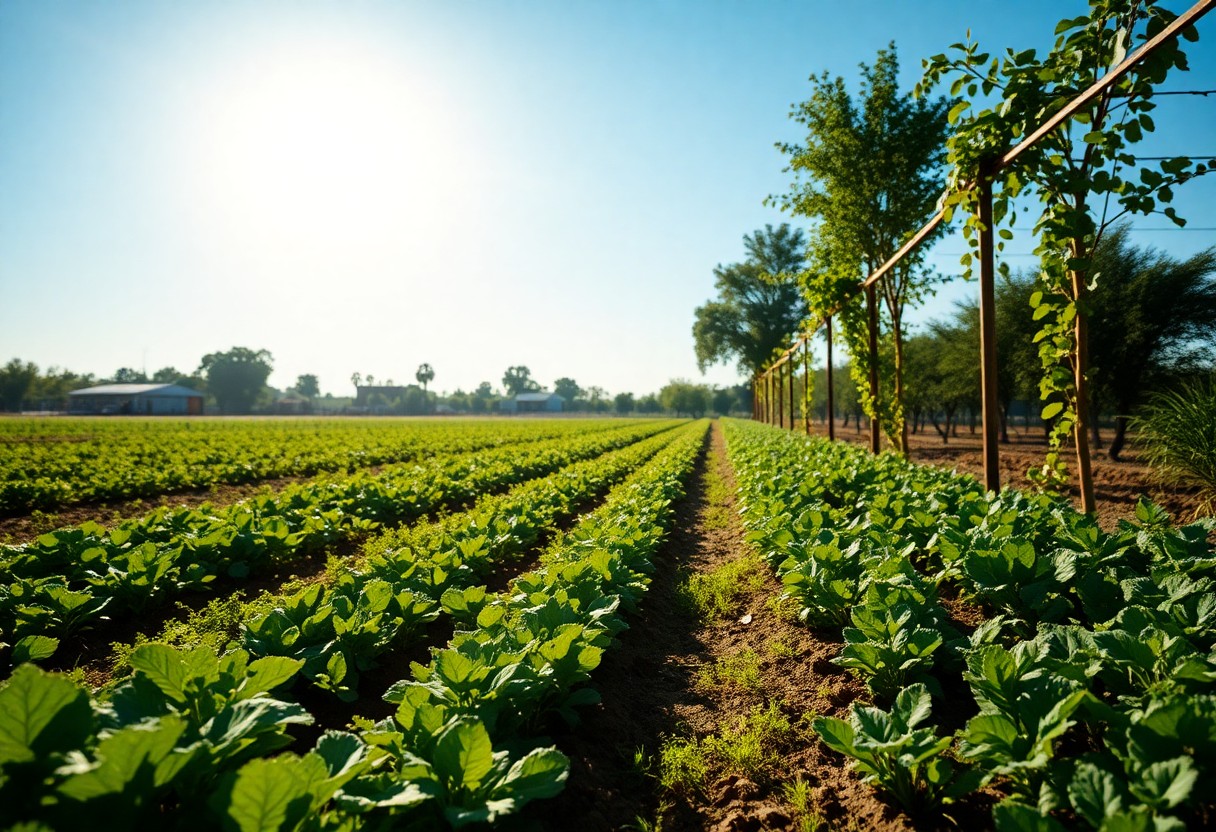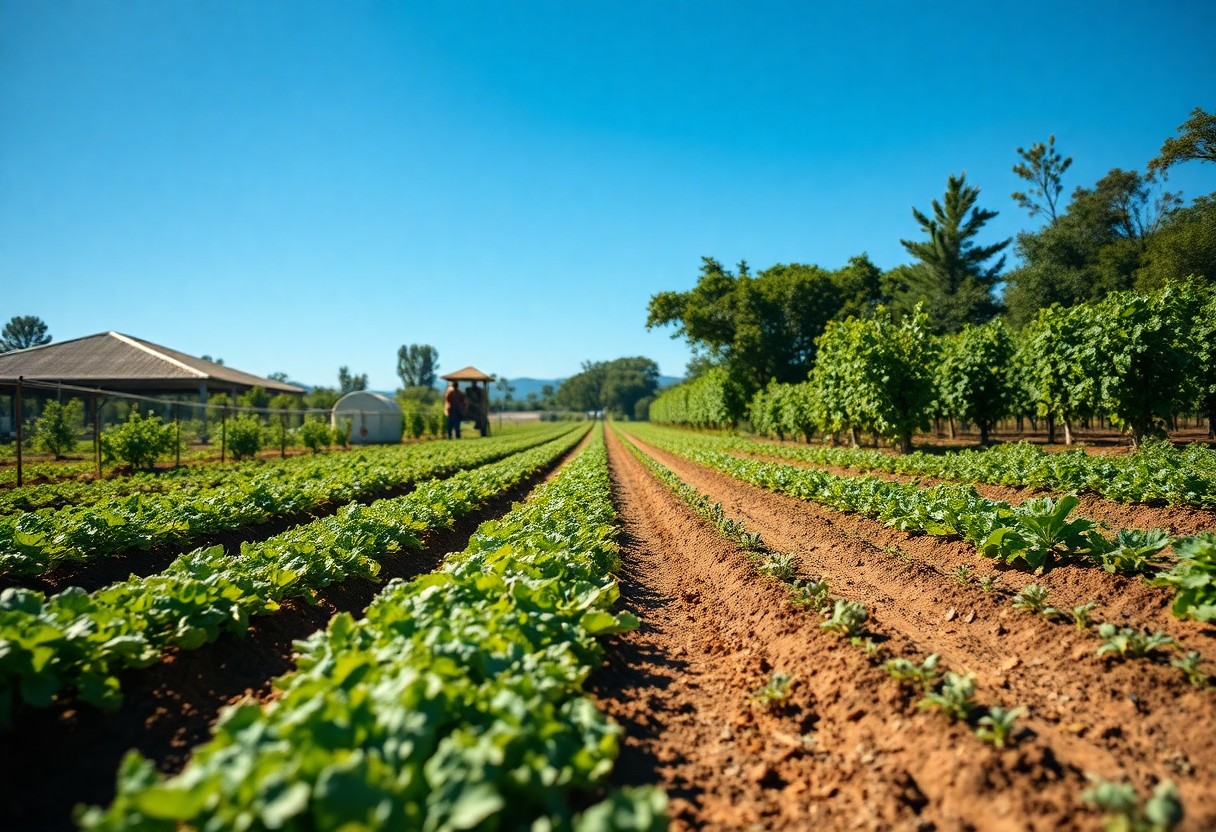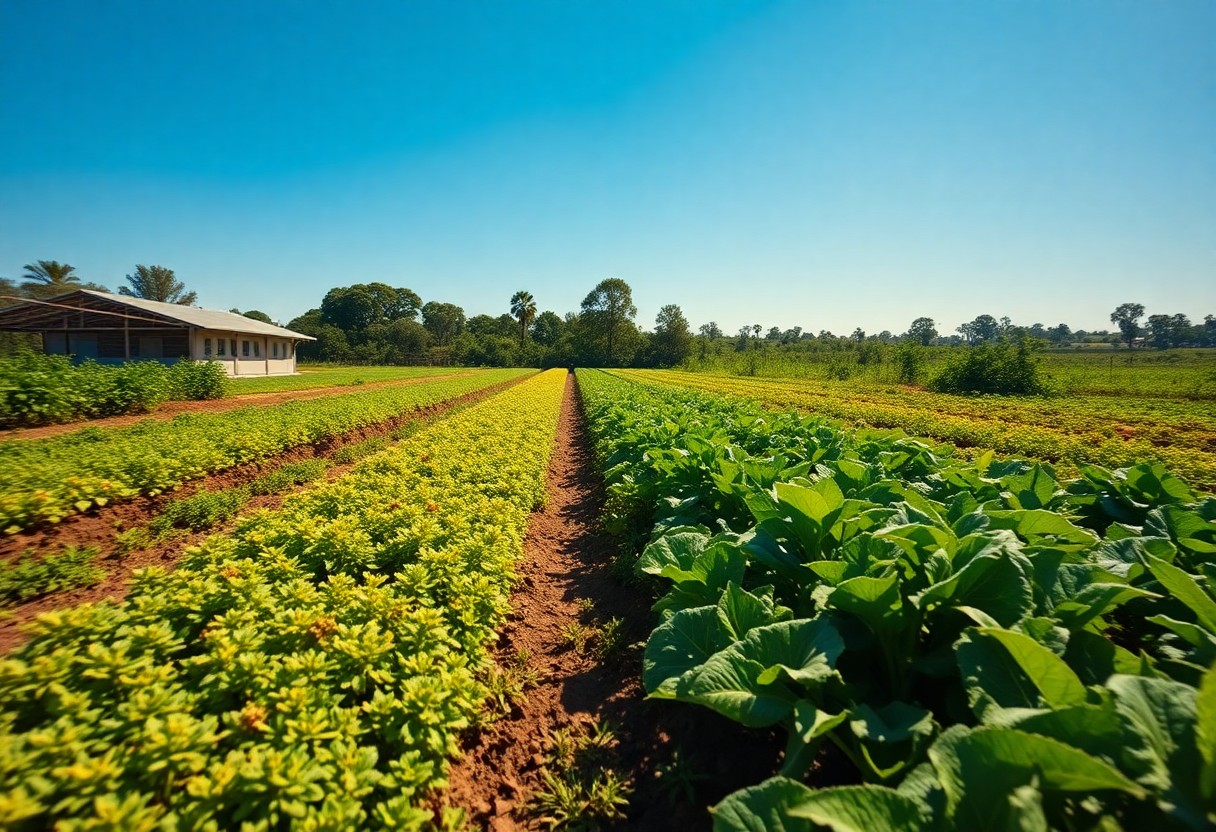It’s important for you to understand the impact of water conservation methods on sustainable agriculture, especially in today’s global water crisis. As water scarcity becomes increasingly prevalent, adopting effective practices can not only enhance your crop productivity but also help preserve this vital resource for future generations. By integrating efficient irrigation techniques, soil moisture management, and crop selection based on water efficiency, you can transform your agricultural practices to be more sustainable while ensuring food security. This blog post will explore the innovative strategies you can implement to make a significant difference in your farming approach.
Understanding the Global Water Crisis
A comprehensive understanding of the global water crisis reveals a pressing challenge that you cannot ignore. Factors such as climate change, population growth, and over-extraction of water resources have intensified competition for freshwater supplies. The urgency of the situation calls for innovative solutions in various sectors, including agriculture. Adopting water conservation in sustainable agriculture can play a significant role in addressing this crisis effectively.
Current State of Water Resources
Around the world, freshwater resources are dwindling at an alarming rate, with many regions facing severe shortages. An alarming percentage of the global population lacks access to safe drinking water. This unsustainable exploitation of groundwater, coupled with uneven distribution and deteriorating water quality, poses a significant threat to both ecosystems and human well-being.
Impact on Agriculture and Food Security
Current water scarcity directly impacts agriculture, leading to reduced crop yields and compromised food security. As water becomes increasingly scarce, you may find it more challenging to sustain your agricultural practices, resulting in higher food prices and less availability of vital supplies.
Indeed, the impact of water scarcity on agriculture is profound, as water plays a pivotal role in crop growth, livestock management, and overall farm productivity. With decreasing water availability, you may encounter challenges in maintaining stable food production levels, which could exacerbate hunger and malnutrition in vulnerable populations. By embracing innovative water conservation methods, you can mitigate these effects and contribute to a more sustainable agricultural future while ensuring food security for communities affected by the crisis.
1. Efficient irrigation reduces water waste significantly.
2. Rainwater harvesting captures natural precipitation effectively.
3. Drought-resistant crops thrive in low-water conditions.
4. Mulching retains soil moisture and prevents evaporation.
5. Technology optimizes water usage in farming practices.
6. Sustainable practices enhance ecosystem resilience and productivity.
Principles of Water Conservation
If you understand the principles of water conservation, you can effectively implement strategies that enhance the sustainability of agricultural practices. These core principles emphasize the efficient use of water resources, the importance of monitoring consumption, and the need for utilizing innovative technologies. By adopting these principles, you not only work towards ensuring your farm’s viability but also contribute to a larger movement of sustainable agriculture in the face of a global water crisis.
Definition and Importance
About water conservation: it refers to a set of practices aimed at preserving and managing water resources wisely. Its importance cannot be overstated, as efficient water use in agriculture directly impacts crop yields and resource sustainability. By prioritizing water conservation, you help safeguard your farming operations against water shortages while promoting environmental health.
Techniques of Water Conservation in Agriculture
About various techniques of water conservation in agriculture are designed to ensure minimal water wastage while maximizing efficiency. These practices include rainwater harvesting, drip and sprinkler irrigation, mulching, and soil moisture management. Utilizing these techniques enables you to maintain healthy crops while significantly reducing water usage.
But implementing these techniques requires careful planning and consideration of your specific agricultural context. For example, drip irrigation systems offer targeted watering, minimizing evaporation and runoff, while rainwater harvesting can provide an alternative water source. You can also enhance soil health through mulching, which retains moisture and reduces the need for frequent irrigation. By integrating these methods, you can create a resilient agricultural system that thrives even in challenging water conditions.
Sustainable Agriculture Practices
After understanding the importance of water conservation, you can explore sustainable agriculture practices that serve to optimize water usage. These practices not only help in conserving precious water resources but also promote soil health and enhance crop yield. By adopting techniques such as rainwater harvesting, drip irrigation, and crop rotation, you can effectively manage water resources while ensuring the sustainability of agricultural ecosystems.
Integrated Water Resource Management
For a successful agricultural approach, integrating water resources is crucial. This method emphasizes the efficient use of water by coordinating management across different sectors and ensuring that you utilize surface water, groundwater, and rainfall effectively. By adopting integrated water resource management, you can enhance water availability for irrigation while mitigating the adverse impacts of water scarcity.
Crop Selection and Soil Management
To maximize water conservation in your agricultural practices, focus on selecting appropriate crops and employing sound soil management techniques. Choose drought-resistant varieties that thrive in arid conditions, and adopt practices like cover cropping and reduced tillage to improve soil health and retain moisture.
In fact, selecting the right crop varieties can significantly influence your water use efficiency. Opting for drought-tolerant crops can reduce your dependence on irrigation while still providing good yields. Additionally, practicing soil management techniques, such as adding organic matter and maintaining proper pH levels, promotes better water retention and enhances nutrient availability. This holistic approach not only aids in conserving water but also fosters healthier soils, ultimately leading to more sustainable agricultural systems.

Technologies Driving Water Conservation
Once again, technology is stepping up to address the pressing issue of water scarcity in agriculture. By implementing advanced systems, farmers can optimize their water usage, ensuring that every drop counts. Precision irrigation, moisture sensors, and automated scheduling are just a few innovations that not only save water but also enhance crop yield and soil health. Embracing these technologies is imperative for sustainable farming practices amid the global water crisis.
Innovations in Irrigation
Against the backdrop of increasing water demands, innovative irrigation methods such as drip and subsurface irrigation are gaining popularity. These systems deliver water directly to the plant roots, significantly reducing evaporation and runoff. By adopting these techniques, you can achieve better water efficiency and enhance your overall crop health.
Smart Technologies and Data Analytics
After integrating smart technologies, you can harness data analytics tools that provide valuable insights into your water usage and crop needs. This approach allows you to make informed decisions based on real-time data, optimizing your farming operations for water conservation.
Even with the implementation of smart technologies, the real power lies in the analysis of the data collected. By using sensors and IoT devices, you gain access to valuable metrics regarding soil moisture, weather patterns, and crop health. These insights enable you to tailor your irrigation schedules, reduce water wastage, and increase your crop resilience against climate fluctuations. As you embrace data-driven practices, you position yourself at the forefront of sustainable agriculture, ensuring that your operations are not only efficient but also environmentally friendly.
Benefits of Water Conservation Methods
Keep in mind that implementing water conservation methods not only enhances crop yield but also promotes better soil health. These practices reduce water wastage, ensuring that every drop counts towards nourishing your crops. By utilizing efficient irrigation systems and rainwater harvesting, you contribute to sustainable agricultural practices that benefit both your farm and the environment. In the long run, water conservation leads to improved resilience against drought and unpredictable weather patterns, ultimately securing your agricultural livelihood.
Environmental Impacts
Among the numerous advantages of water conservation methods, their positive environmental impacts stand out. By reducing water usage, you decrease the strain on local water sources, helping to maintain ecosystems and biodiversity. Additionally, these practices minimize runoff, which can carry pollutants into waterways, contributing to healthier aquatic systems. Implementing water-efficient strategies ensures sustainable land usage and promotes ecological balance.
Economic Viability
Environmental sustainability ties directly to the economic viability of your agricultural practices. By conserving water, you can significantly cut irrigation costs and resource expenditures, ultimately increasing your profit margins. Innovative irrigation techniques and water-efficient crops also enhance your farm’s productivity, allowing you to optimize resources while meeting consumer demand. Furthermore, adopting conservation practices positions your business as environmentally responsible, appealing to a growing market of eco-conscious consumers.
Considering the rising costs associated with water scarcity, embracing water conservation methods can become a smart economic strategy for your agricultural operation. By investing in technology and equipment that promote efficiency, you position yourself to save money over time. Lower water usage not only cuts your immediate expenses but also mitigates future risks related to water shortages. These actions not only save you money but also attract potential grants or subsidies aimed at sustainable practices, enhancing your overall financial viability.

Case Studies and Success Stories
All around the world, innovative water conservation methods have proven effective in transforming sustainable agriculture. Here are some detailed case studies:
- Israel’s drip irrigation systems have increased crop yields by 50% while reducing water use by 80%.
- California’s adoption of rainwater harvesting techniques has led to a 20% reduction in irrigation costs for farms.
- Australia’s precision farming practices have resulted in 30% less water use per acre without compromising productivity.
- Spain’s aquifer recharge initiatives have successfully restored over 10,000 hectares of agricultural land.
For further insights, check out Water Conservation Strategies for Sustainable Agriculture.
Global Examples of Successful Implementation
Against the backdrop of a global water crisis, these examples emphasize that innovative methods can lead to sustainable solutions. By implementing advanced technologies and sustainable practices, communities have experienced improved water efficiency and heightened agricultural resilience. You can follow in their footsteps, understanding that these successes pave the way for broader adoption of water-conscious agriculture worldwide.
Lessons Learned from Pioneering Farmers
For many pioneering farmers, the journey to improved water management has revealed valuable lessons. Emphasizing adaptability, collaboration, and education, they have demonstrated the importance of integrating traditional knowledge with modern techniques to optimize water use and enhance productivity.
Considering the insights gained from these innovative farmers, you can observe that fostering open dialogues within farming communities and engaging with experts will help you devise practical and effective water conservation strategies. Many have found that utilizing local resources, experimenting with various techniques, and sharing best practices leads to sustainable agriculture that is resilient to climate shifts and water scarcity.
Summing up
From above, you can see that implementing water conservation methods transforms sustainable agriculture, especially amid the global water crisis. By adopting practices such as drip irrigation, rainwater harvesting, and crop rotation, you enhance your resource efficiency, improve soil health, and ensure better yields. These strategies not only address immediate water shortages but also contribute to long-term agricultural sustainability. As you embrace these techniques, you’re not only safeguarding your water resources but also playing a vital role in protecting the environment for future generations.



